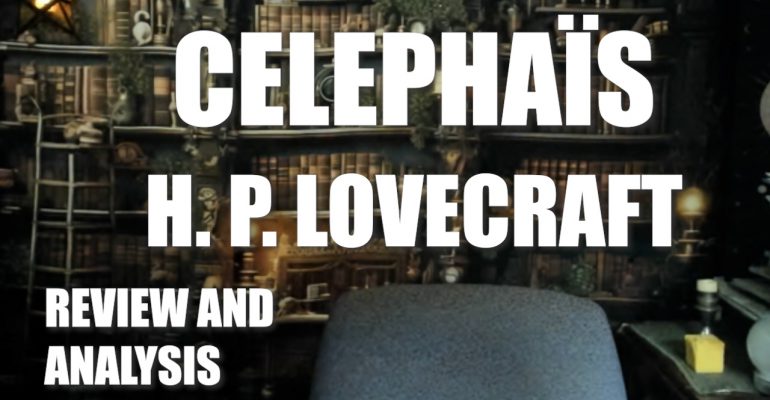I was doing reasonably well on a week-by-week progression of Lovecraft’s stories in the order of publication up until November 2024. Then life threw some serious challenges at me. Here it is May 2025. I finally am getting back to this project. This means that while, in previous sessions, I only read a given story a handful of times before interpreting it, I’ve probably read Celephaïs 20 times or more because I kept thinking I’d be ready to do the write-up and then something else happened.
Unfortunately, Celephaïs just isn’t one of my favorite stories. If I was going to be ‘forced’ to reread a story this many times to prepare, I wish it had been one of the other stories. One could say that maybe that lack of interest is why I just didn’t get to it in a timely fashion.
I suppose I’m grateful that at least Celephaïs started at the beginning, unlike many of Lovecraft’s previous stories. Kuranes is a man in his fifties who once was rich and noble, but now his mansion is sold, his wealth is gone, and he’s stuck in a normal apartment with the average folk. He hates this. Not only that, but the average folk oddly (?) don’t enjoy his writings about how wonderful his life used to be when he could be sexist and racist and do whatever he wanted to. So he’s also become a hermit.
The only place he’s happy is in his dreams, where he is absolute Master of his Universe. And suddenly he dreams the Ultimate Dream, one he’d had when he was quite young, where an entire kingdom of his own creation, full of mind-boggling obsequious slaves, lay ready to cater to his every wish. Kuranes is joyful. He’s been waiting for this for decades. And then he keeps trying to have that same dream, but unfortunately his dreams go back to just ‘nice’ dreams of lovely flowers and cherry blossoms and such. But he’s not happy. He wants his ultimate dream full of googly-eyed slaves eager to do his every bidding.
So he takes giant doses of hashish.
Now he’s talking with violet-colored gasses about infinity. And, also, he’s spent all his money so he’s kicked out of his apartment. He’s homeless.
Luckily for him, a contingent of fully-armored knights comes along and escorts him through beautiful rural villages from the time of Chaucer. You know, the times where kings could do whatever they wanted including sleeping with any girl they happened across. And then he leaps off a cliff to go to his promised land, although unfortunately his earthly body crashes to die, forgotten, on the rocks.
So, what did we learn here.
Lovecraft is still obsessed with how much it sucks to be a normal person instead of a wealthy rich commander of a mansion. Also, Lovecraft is grumpy that the modern world looks down on his questionable views. He wishes he lived in an earlier time where – surely – everyone would adore his viewpoint. And Lovecraft is writing his story as a call to arms for all his fellow entitled I-want-to-be-rich why-aren’t-I-rich people.
This just has so many echoes for me of what is going on in our modern world that it makes me unhappy to have to read and re-read his griping. He doesn’t even want a society where he graciously helps every person in his kingdom be happy. He wants a world full of NPCs where he’s the main character and can do and say anything at all that he wants. When he leaves, everyone just pauses and waits for his return.
I’d love to hear your thoughts. Here’s the story.
https://www.hplovecraft.com/writings/texts/fiction/c.aspx
My video review of Celephaïs


